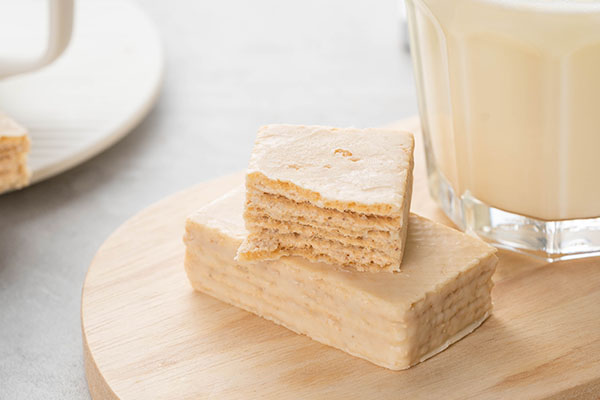The Superfood Status of Yeast: An Essential Guide
Yeast, a tiny microorganism with immense nutritional value, has been an integral part of human diets for thousands of years. From bread and beer to modern dietary supplements, yeast's versatility and health benefits make it worthy of being considered a superfood. This article explores why yeast deserves a prominent place in your diet, detailing its nutritional profile, health benefits, and practical uses.

The Nutritional Powerhouse
Rich in Essential Nutrients
Yeast, particularly nutritional yeast, is packed with essential nutrients that contribute to overall health:
High-Quality Protein: Nutritional yeast contains all nine essential amino acids, making it a complete protein source.
B Vitamins: It is rich in B vitamins, including B1 (thiamine), B2 (riboflavin), B3 (niacin), B6 (pyridoxine), and B9 (folic acid).
Vitamin B12: One of the few plant-based sources of this crucial vitamin, necessary for DNA synthesis and red blood cell formation.
Dietary Fiber: Supports digestive health and helps maintain a healthy weight.
Minerals: Includes iron, selenium, and zinc, essential for various bodily functions.
Low in Unhealthy Components
Nutritional yeast is low in sodium, cholesterol-free, and contains minimal saturated fat, making it a heart-healthy addition to any diet.
Health Benefits of Yeast
Supports Immune Function
Yeast, particularly certain strains used as probiotics, can enhance immune function. It helps maintain a balanced gut microbiota, which plays a crucial role in immune health. Regular consumption can lead to a more robust immune system, better able to fend off infections.
Promotes Digestive Health
The probiotic properties of yeast contribute to a healthy digestive system. It can alleviate symptoms of digestive disorders, reduce inflammation, and improve nutrient absorption. Probiotic yeasts, such as Saccharomyces boulardii, are particularly effective in managing gastrointestinal issues.
Enhances Skin, Hair, and Nail Health
The rich nutrient profile of yeast, including B vitamins and proteins, supports healthy skin, hair, and nails. Regular intake can lead to improved skin elasticity, stronger nails, and shinier hair.
Benefits for Vegans and Vegetarians
Yeast, especially nutritional yeast, is an excellent addition to vegan and vegetarian diets. It provides essential nutrients that might be lacking in plant-based diets, such as vitamin B12 and complete proteins.
Practical Uses of Yeast
Culinary Applications
Nutritional yeast, with its savory, cheese-like flavor, is a versatile ingredient in the kitchen:
Seasoning: Sprinkle on popcorn, pasta, or salads for a nutritious flavor boost.
Cheese Substitute: Use it in vegan cheese recipes or as a parmesan replacement.
Thickening Agent: Add to soups and sauces for added thickness and nutrition.
Dietary Supplements
Nutritional yeast can be taken as a supplement in flake or powder form, providing an easy way to boost nutrient intake. It's particularly beneficial for those with dietary restrictions or increased nutrient needs.
Yeast in Fermentation
Traditional Fermented Foods
Yeast plays a pivotal role in the fermentation process, used in making bread, beer, wine, kombucha, and kefir. Fermentation not only enhances the flavor and texture of foods but also increases their nutritional value by breaking down complex compounds into more digestible forms.
Sustainable Biomass
Yeast is a sustainable and environmentally friendly ingredient. It grows quickly, requires minimal resources, and can be produced on a large scale. The by-products of yeast production are often used as animal feed or fertilizers, contributing to a circular economy.
The Future of Yeast
Innovations in Food and Health
Research continues to uncover new applications for yeast in food and health industries. Innovations include using yeast to produce biofuels, develop new probiotic strains, and enhance the nutritional content of foods.
Yeast in Biotechnology
Yeast is a valuable tool in biotechnology, used in the production of pharmaceuticals, biofuels, and other industrial products. Its ability to efficiently convert sugars into valuable compounds makes it a cornerstone of biotechnological research.
Conclusion
Yeast is more than just a humble microorganism; it's a nutritional powerhouse with numerous health benefits and practical uses. Its rich nutrient profile, immune-boosting properties, and versatility in culinary and industrial applications make it a true superfood. By incorporating yeast into your diet, you can enhance your overall health and well-being, making it a worthy addition to any balanced diet.
In conclusion, embracing the potential of yeast can lead to a healthier, more sustainable lifestyle. Whether you're looking to boost your nutrient intake, support your immune system, or explore new culinary horizons, yeast is a valuable ally in your journey to better health.
Source: Explore Yeast
